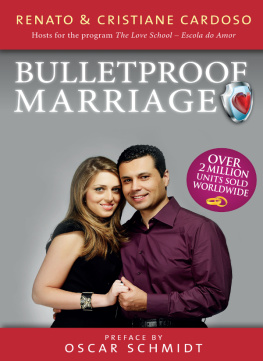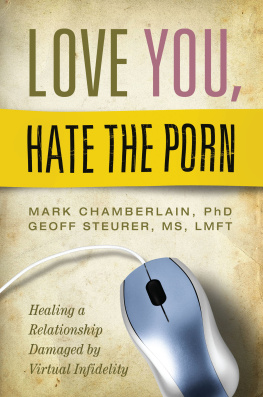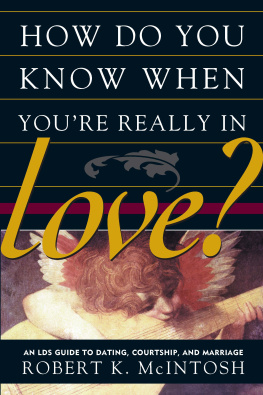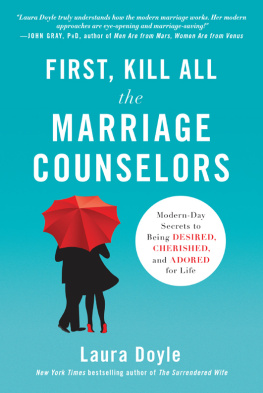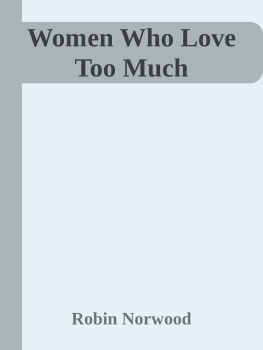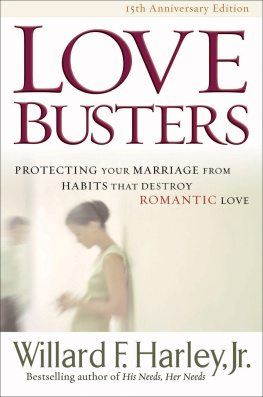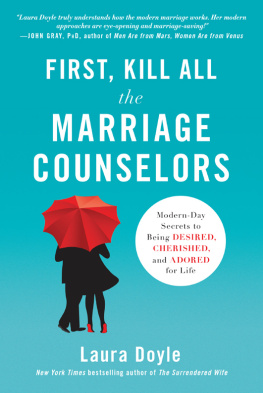Published by Motivational Press, Inc.
1777 Aurora Road
Melbourne, Florida, 32935
www.MotivationalPress.com
Copyright 2018 by Sherry Gaba & Beth Adelman
All Rights Reserved
No part of this book may be reproduced or transmitted in any form by any means: graphic, electronic, or mechanical, including photocopying, recording, taping or by any information storage or retrieval system without permission, in writing, from the authors, except for the inclusion of brief quotations in a review, article, book, or academic paper. The authors and publisher of this book and the associated materials have used their best efforts in preparing this material. The authors and publisher make no representations or warranties with respect to accuracy, applicability, fitness or completeness of the contents of this material. They disclaim any warranties expressed or implied, merchantability, or fitness for any particular purpose. The authors and publisher shall in no event be held liable for any loss or other damages, including but not limited to special, incidental, consequential, or other damages. If you have any questions or concerns, the advice of a competent professional should be sought.
Manufactured in the United States of America.
ISBN: 978-1-62865-516-2
Introduction
Sherrys Story
T here i was a year after my father had passed away, four years since my fourth divorce, two years after my dog, Max, died, and it was as if I had just woken up from a very long nightmare. I no longer felt numb, disconnected, medicated or asleep. My fathers death had put me in a depression and down a rabbit hole that went way beyond losing my dad. I had been beating myself up for all the relationships that had failed, feeling sorry for myself that I had to grieve alone. How unfair, I thought, that my dad died and I had no shoulder to cry on.
Suddenly waking up from this nightmare, I no longer felt the need to destroy my self-esteem with endless shame attacks because I had been so unlucky in love. I had spent a year grieving my first love, my father, and I was ready to feel againto feel connected, to belong to something greater than myself. I could only describe this process as a spiritual awakening. My father was gone, but I was alive and he was channeling through me the way to claw out of this hole I was in.
There still wasnt a day that I didnt miss my beloved dad, but I knew he wanted me to stop punishing myself and forgive myself for my mistakeswhich I was viewing as transgressions. I needed to let my dad go to his final resting place, and to find deep compassion for myself for all the marriages I had seen as failures. Instead, I decided, they were stepping stones toward something I didnt know quite yet. These intimate relationships needed to be reframed with a new perspective. Maybe there were lessons here that I needed to learn. And perhaps they needed to be shared with the world. Perhaps my history could make a difference in someone elses life.
The social worker in me would like nothing more than to help someone else go through a different sliding door that could change their life forever. Perhaps the pain I endured had a purpose; it was time to move from the final stages of grieving and tell my story. But what was this story that I needed to tell? I knew I had to share something about my past, but what part? Was it my history of codependent relationships? Was it my history of multiple divorces? Was it my history of a poor picker when it came to choosing husbands? Was it love addiction? Or was it the trials of being a single mother?
Yes, I had to admit all those things were true, but I realized my story was much bigger. I had never heard of it before, but it was as real as my dad being gone was real: I was a romance and marriage addict. I was using falling in love and getting married as a way to numb myself. This was a huge epiphany for me. What was pulling at me was an illness I never even knew I had. You couldnt find it in the Diagnostic and Statistical Manual of Mental Disorders. No, this was something different. I needed to dig deeper.
My story begins fifty-eight years ago in a suburb of the San Fernando Valley known as Van Nuys. Those were the days when there were no freeways and a trip to the maternity ward was more of a challenge. My mothers water broke at six a.m. on February 21, 1959, waking her up. It was quite scary for my mom, I learned later, because not only was this unexpected and way too early, but she had given birth to a stillborn baby five and a half months into her pregnancy a year before. It was her first birth, and she never even knew if it was a boy or a girl; the hospital staff didnt tell you in those days when you had a miscarriagethey never let you see the baby and properly grieve. Miscarriages were hidden away like some horrible disease that needed to be forgotten.
I know (although I cant explain how)or at least in my heart I believemy mom lost a little baby girl. I have always felt from deep in my core that I lost a sister. Years later, a medium told me my mother lost a little baby girl before me and that the soul of that baby was reborn in my daughter. Whether I choose to accept that literally or metaphorically, its quite beautiful. My parents always told me my daughter felt more like a daughter to them than a first grandchild.
My mother and father were scared silly they would lose another baby the night my mothers water broke. They rushed to the hospital in Encino, and my mother gave birth to me at 6:59 a.m. I lay helpless in an incubator, brought into this world two and half months early. My parents were told I was what the hospital staff called a 50-50 baby: I had a 50 percent chance of living or dying. I was only three pounds, two ounces.
In those days, premature babies were not given the extra attention they receive today. Hospitals didnt have specialists to teach you the skills you needed to love, nurture, and bond with a helpless preemie. They didnt understand the vital early importance of touch. Instead, I lay there, helpless and alone, in a tiny incubator, oxygen over my nose so I could breathe and feeding tubes in my little feet so I could be nourished. I did not experience the love I so desperately needed from my mother because I was whisked away from her immediately. There was no contact with my mother, except her watching me from a maternity ward window. The hospital staff thought I would be in danger from germs if anyone on the outside, including my own mother, held me. Only the hospital nurses and doctors were allowed to touch, hold, and care for me.
I lay there in that incubator alone and afraid, not knowing to whom I belonged. Although I dont remember the experience mentally, studies have shown we have something called cell memory, so whatever we have forgotten in our minds, our bodies can still remember. This set me up for my first experience with abandonment and my first major trauma, and it laid the foundation for severe separation anxiety and abandonment issues in all my later intimate relationships.
I am convinced this also set me up for severe generalized anxiety disorder and depression. From the time I can remember, way into my adult years, I suffered from profound separation anxiety when I perceived my parents were leaving mewhich happened a lot in my early developmental years. My mother went back to work nights almost immediately, leaving me with my dad to care for me. I always felt more bonded with my dad, and as I look back, I can now understand why.
I was treated for anxiety and depression in my thirties, but that was only a Band-Aid to help soothe my aching soul from abandonment and separation early on. It was not until my late forties that I discovered trauma work with an experienced trauma specialist; it opened up a whole new world for me. This was the beginning of the waking up process from a life of disassociation and emptiness I could only describe as a very powerful black hole. Suddenly, rather than feeling disassociated from my body and feelings, I could be grounded and in the moment without being terrified.
Next page

